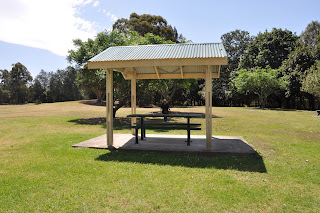Hello, dear readers! I’ve just turned the last page of “The Dictionary of Lost Words” by Pip Williams, and I’m brimming with thoughts and feelings that I’m eager to share with you.
Embarking on a Linguistic Adventure
The Dictionary of Lost Words is sort of on the birthplace of the First Oxford English Dictionary. It is also how the Dictionary had to adpat.. This intriguing premise immediately drew me in and kept me engrossed till the end! As Esme explores the world of words, she unveils the profound impact of language on our lives and identities.
Esme’s journey is both personal and universal. She not only collects words but also stories, memories, and voices that have been marginalized or forgotten. Her passion for words is contagious, inspiring readers to reflect on the language we use daily and the words that shape our thoughts and actions. Esme’s dedication to preserving lost words underscores the importance of language in preserving cultural heritage and promoting inclusivity.
Reveling in the Beauty of Language
One of the aspects that I adored about this book is its homage to language. It uncovers a forgotten narrative, nestled within the pages of a history predominantly authored by men. It’s a beautiful, poetic, and thought-provoking tribute to words, and the incredible power they hold to shape our world and our perception of it. Reading The Dictionary of Lost Words deepened my appreciation for the potency of words.
Language is a living entity, constantly evolving and reflecting the society it serves. “The Dictionary of Lost Words” highlights the dynamic nature of language and its ability to adapt to changing times. The book also emphasizes the role of language in shaping our identities and how the inclusion or exclusion of certain words can influence societal norms and values. It reminds us that words are not just tools for communication but also powerful agents of change.
The author, Pip Williams, masterfully weaves historical facts with fictional elements, creating a narrative that is both educational and engaging. The book’s poetic prose and vivid descriptions immerse readers in the world of early 20th-century England, making the story come alive. Williams’ meticulous research and attention to detail lend authenticity to the narrative, allowing readers to appreciate the historical context and the significance of the Oxford English Dictionary.
Stepping Back in Time
The narrative of The Dictionary of Lost Words is set against the backdrop of the women’s suffrage movement and the impending Great War, offering readers a peek into a pivotal era in history. This historical context not only enriched the story but also made it more compelling. Through Esme’s experiences, we gain insights into the social and political climate of the time, particularly the struggles and triumphs of women fighting for their rights.
The women’s suffrage movement serves as a powerful backdrop for the story, highlighting the parallels between the fight for gender equality and the quest for linguistic inclusivity. The book portrays the suffragettes’ courage and determination, drawing parallels between their struggle and Esme’s mission to reclaim lost words. This historical context adds depth to the narrative, making it resonate with contemporary readers who continue to advocate for equality and social justice.
The looming shadow of the Great War adds an element of tension and urgency to the story. As the world edges closer to conflict, the characters’ personal and professional lives are impacted in profound ways. The war’s impact on the Scriptorium and its staff underscores the interconnectedness of global events and individual experiences. This historical backdrop provides a rich tapestry against which Esme’s story unfolds, enhancing the narrative’s emotional resonance.
The Book Overlaps Ideas
Media and politics play a significant role in shaping the narrative of “The Dictionary of Lost Words.” The book highlights the influence of media in documenting and disseminating information about the women’s suffrage movement and the Oxford English Dictionary. Newspapers and periodicals of the time serve as both sources of information and platforms for public discourse, reflecting the social and political climate of early 20th-century England.
Politicians and policymakers, much like chess players, must navigate complex scenarios and make strategic decisions that impact society. The book underscores the interplay between media and politics in shaping public opinion and influencing the direction of societal progress. It reminds readers that media coverage and political decisions have far-reaching implications, shaping the narrative of history and the collective memory of society.
The role of media and politics in the book parallels contemporary issues, highlighting the importance of informed and responsible journalism and the impact of political decisions on societal progress. The book encourages readers to critically analyze media narratives and political rhetoric, fostering a deeper understanding of the complex interplay between media, politics, and societal change.
This diversity of perspectives can be both a strength and a challenge. On one hand, it fosters robust discussions and a wealth of ideas. On the other hand, it can lead to conflicts and hinder progress if consensus cannot be reached. Navigating these differing viewpoints requires diplomacy, open-mindedness, and a willingness to learn from others.
Wrapping Up
“The Dictionary of Lost Words” is a book that will make you experience a gamut of emotions—it will make you laugh, move you to tears, and most importantly, provoke you to think. It’s a must-read for lovers of words, history enthusiasts, and anyone who enjoys a well-told story. I wholeheartedly recommend it!
The book’s exploration of language, history, and identity offers readers a unique perspective on the power of words and their role in shaping our world. It serves as a reminder of the importance of preserving and celebrating linguistic diversity, promoting inclusivity, and advocating for social justice.
Join the Discussion
What are your thoughts, ideas & did you enjoy “The Dictionary of Lost Words” by Pip Williams? Have you encountered any books that pay homage to language in a similar way? How do you think the historical context of the women’s suffrage movement and the Great War shaped the narrative?












